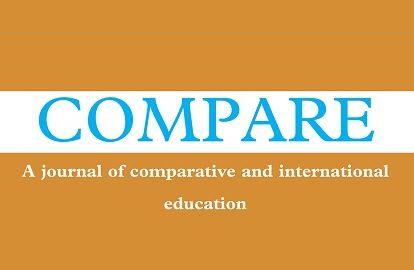After beginning my English teaching career as an English Teaching Assistant with the Fulbright Program in Znojmo, Czech Republic, I continued to teach in various contexts in New York City, the Czech Republic, and Oxford in the United Kingdom. My interest quickly grew in the areas of curriculum development, and EFL writing and the challenges it presents for international students. Some of my recommendations for EFL writing can be found on the blog of my previous company, ESL Write Away.
In 2017-2018, I completed the MSc. Applied Linguistics and Second Language Acquisition course at the University of Oxford, where my research focused on the challenges facing EFL students when writing personal statements for international education purposes in the US and UK. My full thesis, “Where to turn?: A case study of Czech student and local advisor experiences of writing personal statements for undergraduate Anglophone admissions,” can be accessed online on the Oxford Research Archive.
Work in curriculum development and teaching includes the following:
- EducationUSA Student Adviser, Fulbright Commission Czech Republic
- Director of Curriculum Development, Harpier Study
- Guest Lecturer of the “Writing in ELT” course, Charles University, Faculty of Arts
- EFL Curriculum Developer, Edusim’s ChatClass
- Contributor, Bridge Publishing House
- Prépa Tutor, OISE Oxford
Publications: EFL Writing
Fulbright Reality Czech: Writing New Opportunities for International Exchange
February 2021
In Summer 2012 I had just returned from my above-and-beyond amazing semester abroad in Prague, which was the first time I had ever visited, let alone lived in the Czech Republic. It had been on a program weekend visit to Český Krumlov that I first imagined myself as a Fulbright English Teaching Assistant (ETA), living in a smaller Czech town outside of Prague. Everyday of that summer after, I would come home from my summer internship to sit with my computer, working on draft after draft of my personal statement and statement of grant purpose and trying to figure out how to put all of my past experiences and future hopes and dreams into two essays, one page each.

World Education Services Webinar: The Secret to Writing a Great Personal Statement in English
Recorded November 2019
In this webinar, we discuss how to craft a strong personal statement that will impress admissions officers and scholarship review committees. This webinar is intended for international students applying to colleges and universities in North America, or anyone simply looking to improve their writing skills in English.
World Education Services: How to Write Personal Essays for U.S. Universities
March 2019
Every admissions officer really wants to hear your unique voice, story, and vision. So, while there is no wrong way to approach an essay topic (which might also be referred to as a “prompt,” or come in the form of a question), there are ways to make the writing process more manageable—and the end result more powerful.
Here are some essential tips that will help you prepare an excellent personal essays for colleges and universities in the United States.

On Child, Language, Literature Studies: Understanding the problem of the anglophone personal statement in an EFL context: a case study of Czech student and local advisors’ experiences
The personal statement is a written genre that spans the gap between English as a foreign language (EFL) and English for academic purposes instruction as international applicants to American and British universities must express their backgrounds, qualifications, motivations for international study. This case study is extracted from a larger Master’s dissertation and focuses on a Czech student’s and local advisors’ experiences of writing and advising on personal statement writing. Through the lens of pragmatism, challenges that emerged between the participants’ experiences of the features of the genre and Czech students’ socio-educational backgrounds are evaluated as sources of this genre as problematic. The results are discussed with implications for EFL students and teachers in the Czech Republic, Anglophone EFL curriculum developers and universities, and pedagogical research.

Compare Book Reviews: Teaching of national languages in the V4 countries
February 2019
As the years 2018 and 2019 mark two important anniversaries in the shared histories of the Visegrad 4 (V4) nations of the Czech Republic, Hungary, Poland, and Slovakia, the varied shockwaves of these milestones are profound within their education systems. Both language and education are gateways to understanding a host of other sociocultural factors from self-representations of identity to cultural values (Bruner, 1996; Holliday, 2010). An examination of the V4 countries demonstrates the construction and maintenance of cultural narratives through national language education; however, the differences between the curricular approaches in each provide much to consider for comparison. Teaching of National Languages in the V4 Countries, edited by Marek Pieniążek and Stanislav Štěpáník, is a crucial preliminary monograph to inform the educational research community of how the long-standing, yet diverse effects of history on the national language and literature education programs in each country show consistency within the region as a whole.

The Write Life: 5 Easy Ways to Fight Writer’s Block in Your Second Language
June 2016
Writer’s block afflicts all great writers.Suddenly the words just won’t come out and you’re stuck sitting in front of your notebook or computer screen full of frustration. There are plenty of great articles out there with general tips about how to beat writer’s block. Now think about writing not just in your first language, but your second (third or fourth).
 European Association for International Education: The ‘write’ to learn from each other: higher education in the Czech Republic
European Association for International Education: The ‘write’ to learn from each other: higher education in the Czech Republic
September 2014
Opportunities to study abroad are increasingly popular and possible and students choose these experiences with an eagerness for challenges and adventures. Yet when embarking into the world of international education, students may face clashes between cultures, languages, and learning styles. I learned this as an American-study-abroad-student in Prague, and again when I returned to the Czech Republic as an English Teaching Assistant (ETA) through the J.W. Fulbright U.S. Student Program.
